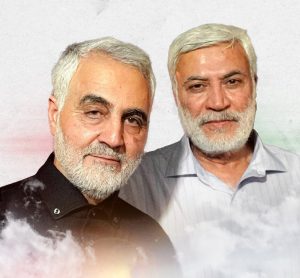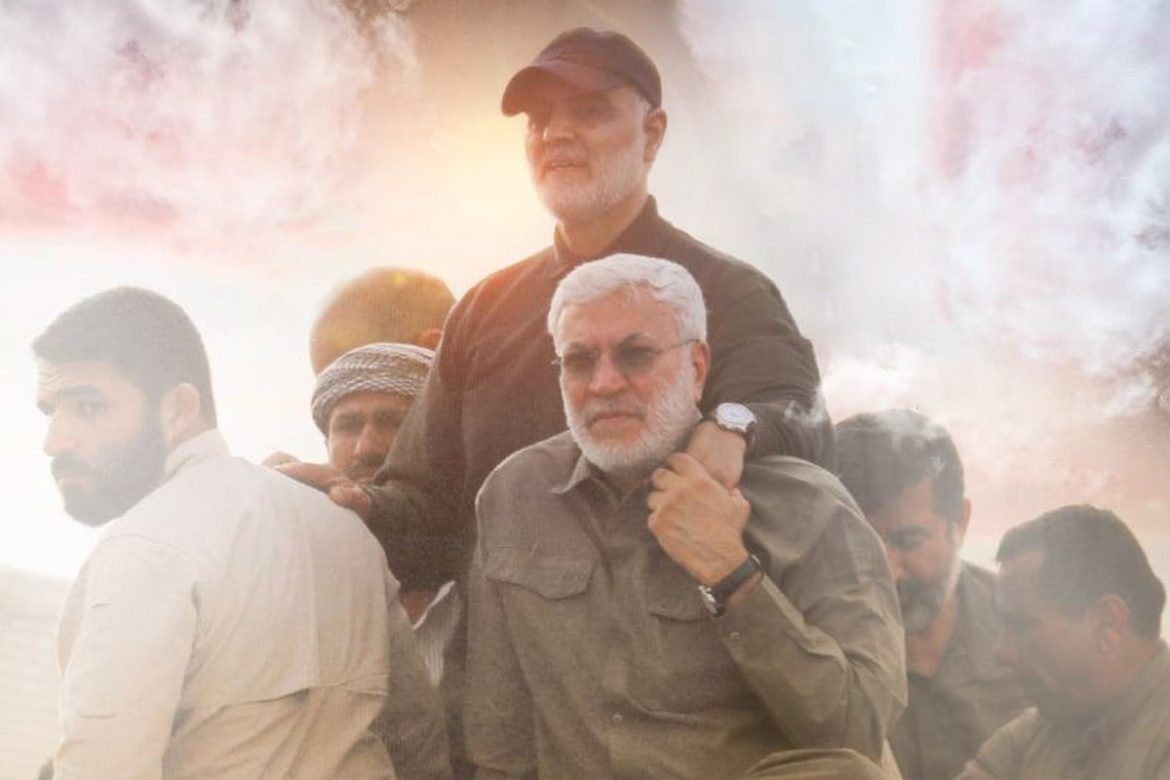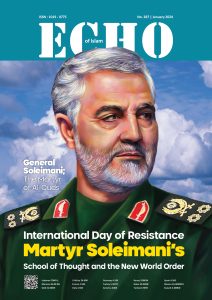A bitter ominous act of assassination at 1:20 am on January 3, 2020, martyred Haj Qasem Soleimani and broke the hearts of millions of Muslims and supporters of truth.
The assassination of Lieutenant General Qasem Soleimani, a great commander and diplomat, whose mission was to eradicate international and regional terrorism, was an unscrupulous act of terrorism committed by Donald Trump and his accomplices, and Trump and the US Department of State shamelessly admitted it.
Besides Sardar Soleimani Abu Mahdi al-Muhandis, a top commander of the Iraqi army and the commander of Iraq’s public forces as well as a number of anti-terrorist forces were also martyred and, therefore, the purpose of this article is to briefly examine the legal aspects of this terrorist crime, for which it is important to know:
- General Soleimani was a top military commander of Iran.
- He had traveled to Iraq with a diplomatic passport.
- His presence in Iraq was as per a security agreement between Iran and Iraq.
- That night, he was traveling to Iraq on the invitation of the Iraqi prime minister to review the ways and means of cooperation and interaction with Saudi Arabia.
 Considering the aforementioned points, it is worth noting that General Soleimani’s visit to Iraq was in accordance with Iraqi laws and, therefore, he was entitled to Troika immunity as defined by the United Nations Commission on Human Rights.
Considering the aforementioned points, it is worth noting that General Soleimani’s visit to Iraq was in accordance with Iraqi laws and, therefore, he was entitled to Troika immunity as defined by the United Nations Commission on Human Rights.
The important point to keep in mind is that at the time of General Soleimani’s assassination, Trump was entitled to Troika immunity and since he is no longer a president he can be summoned to the court of law and put on trial.
The US government justifies this criminal act by resorting to the principle of legitimated defense but according to Article 51 of the Charter of the United Nations: “Nothing in the present Charter shall impair the inherent right of individual or collective self-defense if an armed attack occurs against a Member of the United Nations until the Security Council has taken measures necessary to maintain international peace and security.” It should, thus, be noted that no armed attack had taken place against the US government and the protests launched by the people of Iraq against the presence of the US army in Iraq were neither armed nor had anything to do with Iran.
Furthermore, in order to further justify this act of terrorism, the US government resorts to preventive acts of defense in response to which it should be said that legitimate preventive acts of defense become applicable when there is a possibility of abrupt attack and not based on presumptions. The US government has not so far produced any evidence regarding the possibility of an abrupt armed attack.
Keeping in view the provisions of international laws including the Statute for the International Criminal Court and International Court of Justice as well as the international treaties and also the definitions given on international terrorism, a viable approach to bringing criminals to trial before international courts would be through the 1973 New York Convention.
This Convention is on the Prevention and Punishment of Crimes against Internationally Protected Persons, Including Diplomatic Agents and their families, and a United Nations anti-terrorism treaty that codifies some of the traditional principles on the necessity of protecting diplomats. 180 countries including Iran, Iraq, and the United States are signatories to this convention and all member states have accepted the condition of referring their differences and conflicts to the International Court of Justice.
According to the provisions of this convention, the signatories agree to criminalize those who commit murders or kidnappings of internationally protected persons as well as violent attacks against their official premises, private accommodation, or means of transport.
It can, therefore, be claimed with certainty that the assassination of Martyr Qasem Soleimani and his companions was a clear violation of all international laws and rights and Donald Trump and his accomplices can be sued in international courts.
By: Mahdi Nazari, Expert on International Law
View this article in Echo of Islam 287





